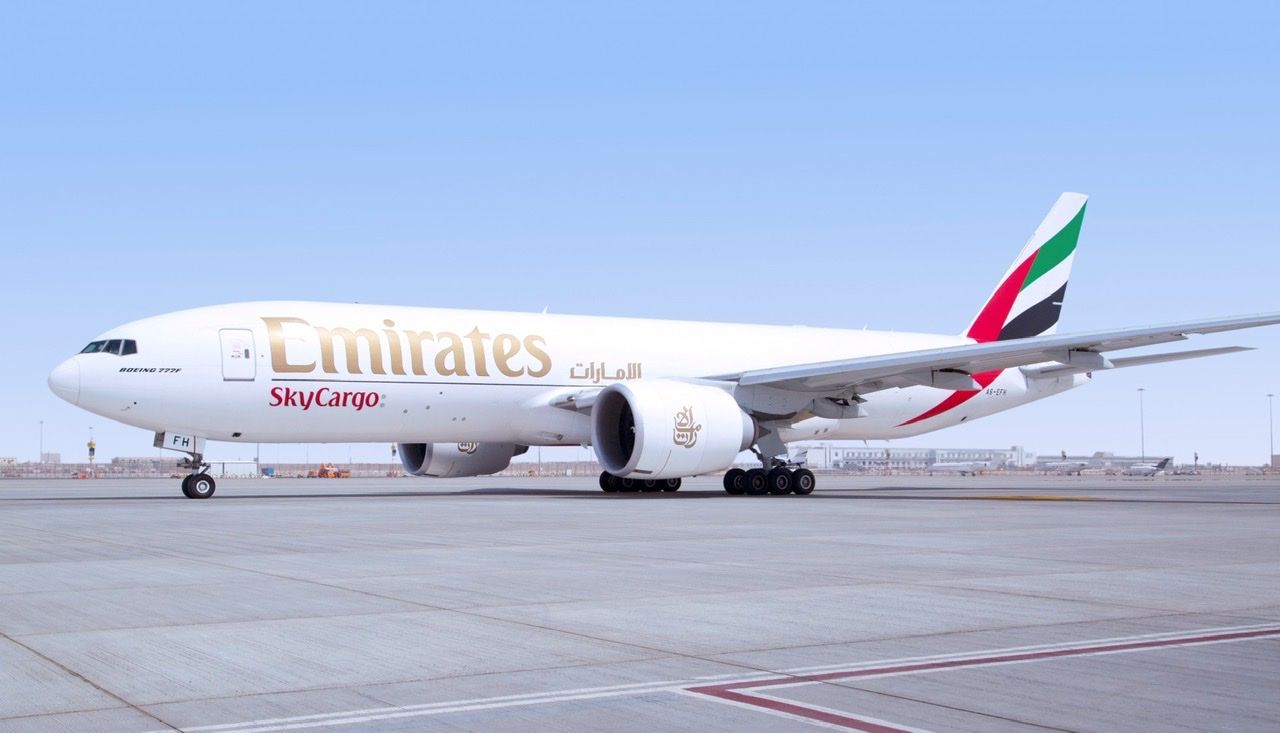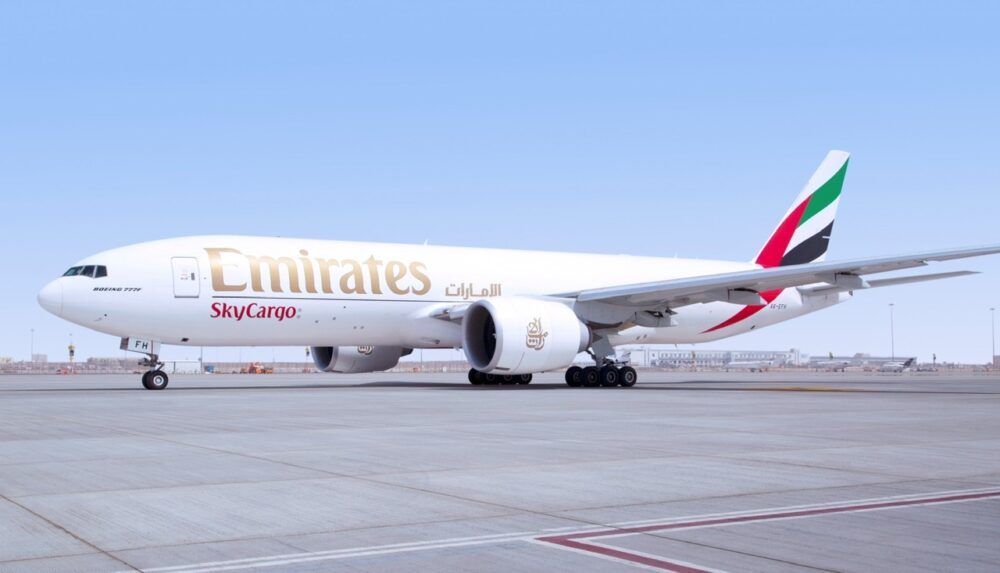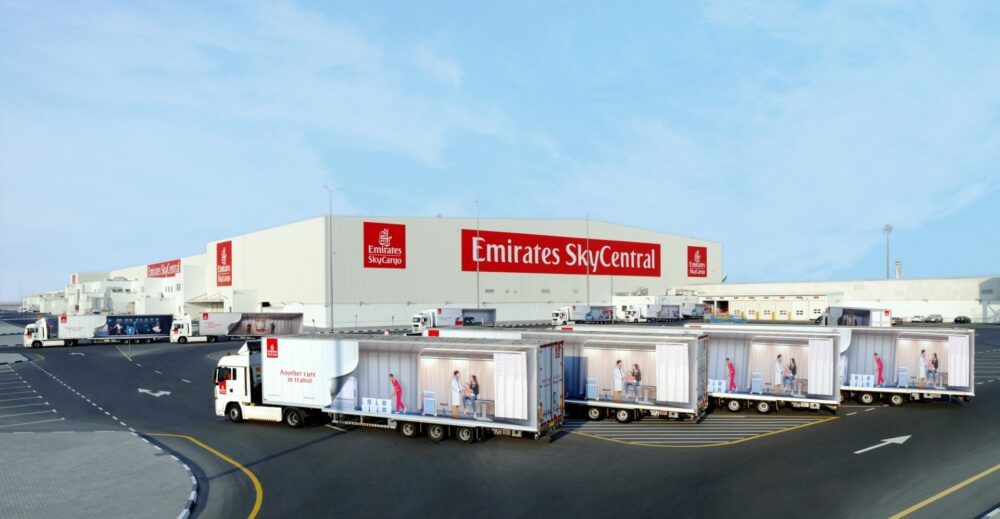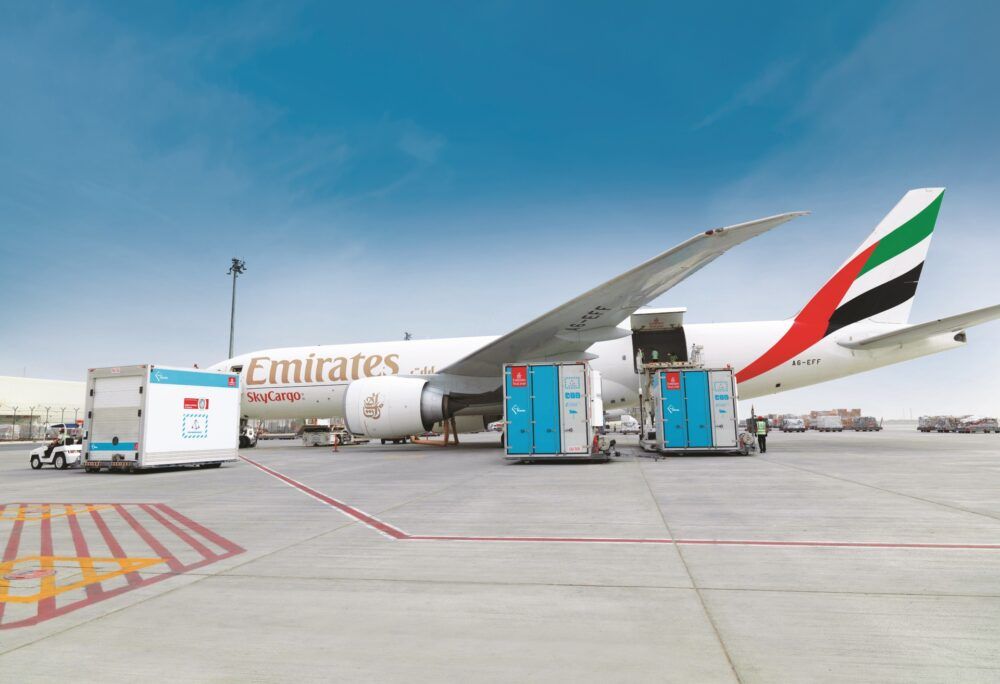The global health crisis continues to take its toll on society. However, companies are working on solutions to help improve conditions heading into next year. Simple had the opportunity to speak with the head of global pharma sales for Emirates SkyCargo, Julian Sutch, about how his firm is preparing for the rollout of the potential COVID-19 vaccine. The businessman spoke of the challenges that could be faced during the process, including the limitations of dry ice.
A well-prepared operation
SkyCargo has been hard at work this year delivering essential cargo across the globe. However, the company has also been preparing well for the rollout of the highly-anticipated COVID-19 vaccine.
The cargo specialist will reopen its SkyCentral DWC cargo terminal. The site will be a dedicated airside facility for the introduction of the vaccine. Moreover, the organization has set up a dedicated response team to help coordinate distribution.
Additionally, the firm has been in communication with many businesses that are also aiding in the launch. Sutch shared that there is a weekly call with the vaccine "taskforce" to get an idea of what to expect with the rollout. Factors include the capacities that are going to be available.
Stay informed: Sign up for our daily aviation news digest.
Limitations on the aircraft
While SkyCargo and its partners are preparing well for the vaccine, there are several aspects to consider. Sutch says that there are potential problems with dry ice. This resource is required to keep the cold supply chain effective during the transportation of the vaccine.
Sutch explains that dry ice is a dangerous good as per the FAA and manufacturer regulations. It depends on the aircraft, but generally, across the board, there can only be 1,000 kg of dry ice in the lower hold of a plane.
"Now, if you very quickly start doing the maths on, let’s say, freezing it at -70, it’s a very, very small amount of vaccines you can move at frozen temperatures," he told Simple Flying.
"I think, if it’s a vaccine that is needed to be moved in minus temperatures, that is going to be one of the biggest issues."
Nonetheless, Sutch feels that authorities are keen to address the situation. Subsequently, he hopes that the numbers can be moved up.
"There are potential issues with dry ice, you know, the dry ice limitations on aircraft, so we’ve all been working very closely around that. I know there are meetings taking place between IATA and some of the governing bodies in the US to try and get those limits put up again," Sutch explained.
"With the COVID vaccine, I think it’ll be very different because normally when we send our vaccines, we’re just sending them to the normal consignees or hospitals or whatever it might be. But this one, I think these vaccines are going to be very much controlled by governments, so they, of course, are very much getting involved as well."
Progress being made
Altogether, Emirates SkyCargo and its partners are working around the clock to prepare for the launch of the COVID-19 vaccine. Several vaccine candidates are edging closer to a confirmed solution. When the time comes, the aviation industry will be ready to help with the introduction.
What are your thoughts about the launch of the COVID-19 vaccine? What do you make of how companies are preparing for the rollout? Let us know what you think of the situation in the comment section.




